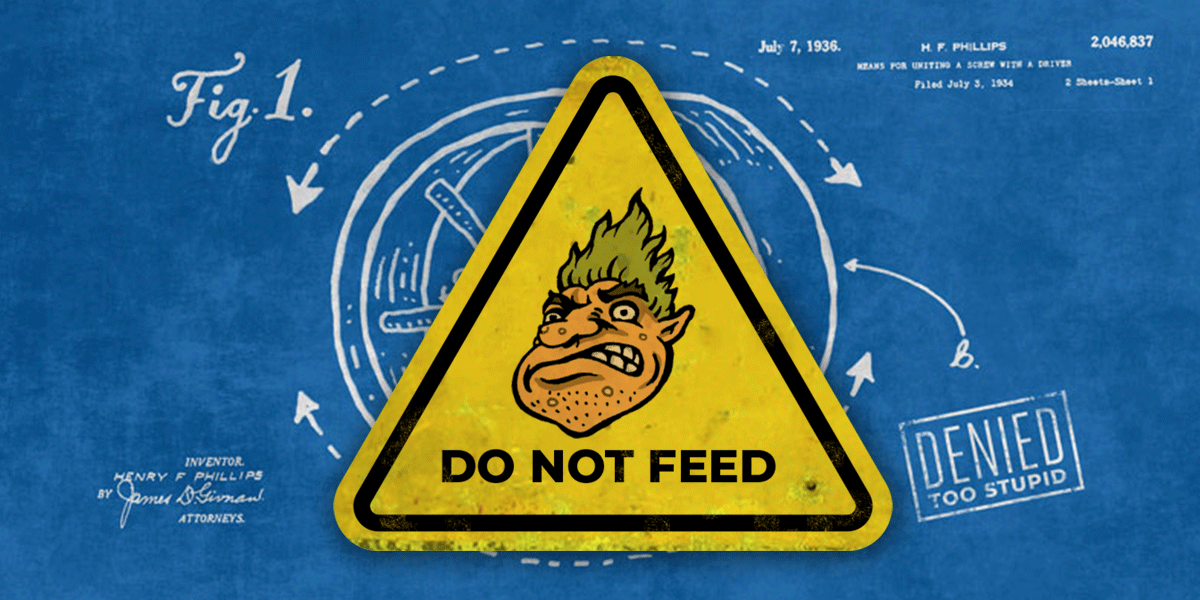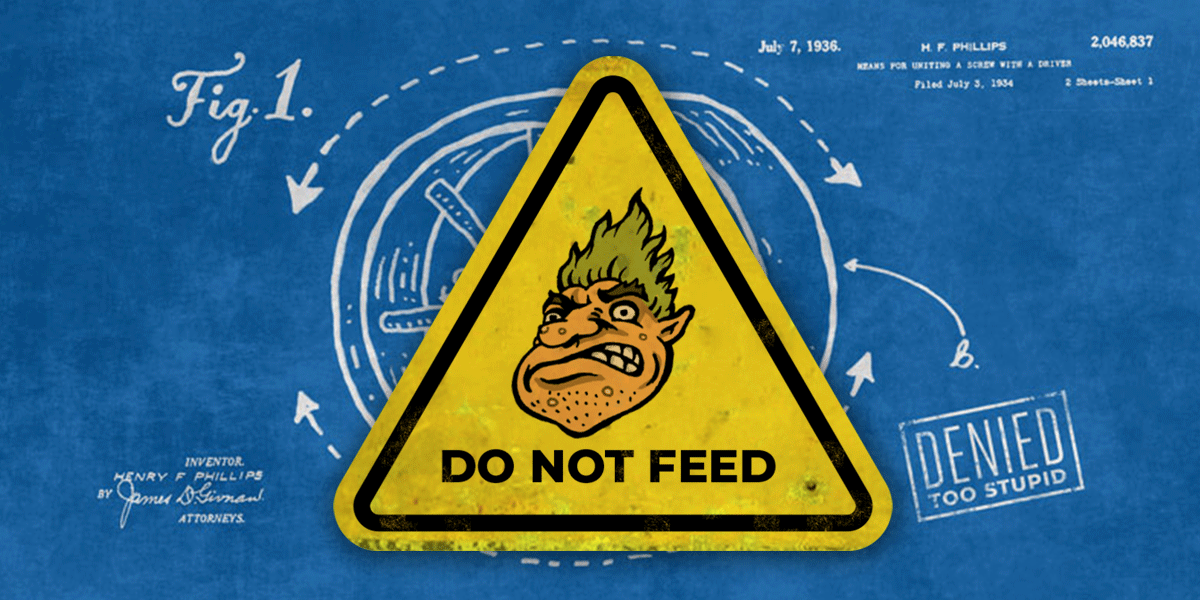Two dangerous bills have been reintroduced in Congress that would reverse over a decade of progress in fighting patent trolls and making the patent system more balanced. The Patent Eligibility Restoration Act (PERA) and the PREVAIL Act would each cause significant harm on their own. Together, they form a one-two punch—making it easier to obtain vague and overly broad patents, while making it harder for the public to challenge them.
These bills don’t just share bad ideas—they share sponsors, a coordinated rollout, and backing from many of the same lobbying groups. Congress should reject both.
Tell Congress: Don't Bring Back The Worst Patents
PERA Would Legalize Patents on Basic Software—and Human Genes
PERA would overturn long-standing court decisions that have helped keep some of the worst patents out of the system. This includes the Supreme Court’s Alice v. CLS Bank decision, which bars patents on abstract ideas, and Myriad v. AMP, which correctly ruled that naturally occurring human genes cannot be patented.
Thanks to the Alice decision, courts have invalidated a rogue’s gallery of terrible software patents—such as patents on online photo contests, online bingo, upselling, matchmaking, and scavenger hunts. These patents didn’t describe real inventions—they merely applied old ideas to general-purpose computers.
PERA would wipe out the Alice framework and replace it with vague, hollow exceptions. For example: it would ban patents on “dance moves” and “marriage proposals,” but would allow nearly anything involving a computer or machine—even if it only mentions the use of a computer. This is the same language used in many bad software patents that patent trolls have wielded for years. If PERA passes, patent claims that are currently seen as weak will become much harder to challenge.
Adding to that, PERA would bring back patents on human genes—exactly what was at stake in the Myriad case. EFF joined that fight, alongside scientists and patients, to prevent patents that interfered with essential diagnostic testing. Congress should not undo that victory. Some things just shouldn’t be patented.
PERA’s requirement that living genes can constitute an invention if they are “isolated” is meaningless; every gene used in science is “isolated” from the human body. This legal wordplay was used to justify human gene patents for decades, and it’s deeply troubling that some U.S. Senators are on board with bringing them back.
PREVAIL Weakens the Public’s Best Defense Against Patent Abuse
While PERA makes it easier to obtain a bad patent, the PREVAIL Act makes it harder to get rid of one.
PREVAIL would severely limit inter partes review (IPR), the most effective process for challenging wrongly granted patents. This faster, more affordable process—administered by the U.S. Patent and Trademark Office—has knocked out thousands of invalid patents that should never have been issued.
EFF has used IPR to protect the public. In 2013, we challenged and invalidated a patent on podcasting, which was being used to threaten creators across the internet. Thousands of our supporters chipped in to help us bring that case. Under PREVAIL, that challenge wouldn’t have been allowed. The bill would significantly limit IPR petitions unless you’ve been directly sued or threatened—a major blow to nonprofits, open source advocates, and membership-based defense groups that act in the public interest.
PREVAIL doesn’t stop at limiting who can file an IPR. It also undermines the fairness of the IPR process itself. It raises the burden of proof, requiring challengers to overcome a presumption that the patent is valid—even when the Patent Office is the one reviewing it. The bill forces an unfair choice: anyone who challenges a patent at the Patent Office would have to give up the right to fight the same patent in court, even though key legal arguments (such as those involving abstract subject matter) can only be made in court.
It gets worse. PREVAIL makes it easier for patent owners to rewrite their claims during review, taking advantage of hindsight about what’s likely to hold up. And if multiple parties want to challenge the same patent, only the first to file may get heard. This means that patents used to threaten dozens or even hundreds of targets could get extra protection, just because one early challenger didn’t bring the best arguments.
These changes aren’t about improving the system. They’re about making it easier for a small number of patent owners to extract settlements, and harder for the public to push back.
A Step Backward, Not Forward
Supporters of these bills claim they’re trying to restore balance to the patent system. But that’s not what PERA and PREVAIL do. They don’t fix what’s broken—they break what’s working.
Patent trolling is still a severe problem. In 2024, patent trolls filed a stunning 88% of all patent lawsuits in the tech sector.
At the same time, patent law has come a long way over the past decade. Courts can now reject abstract software patents earlier and more easily. The IPR process has become a vital tool for holding the Patent Office accountable and protecting real innovators. And the Myriad decision has helped keep essential parts of human biology in the public domain.
PERA and PREVAIL would undo all of that.
These bills have support from a variety of industry groups, including those representing biotech firms, university tech transfer offices, and some tech companies that rely on aggressive patent licensing. While those voices deserve to be heard, the public deserves better than legislation that makes it easier to secure a 20-year monopoly on an idea, and harder for anyone else to challenge it.
Instead of PERA and PREVAIL, Congress should focus on helping developers, creators, and small businesses that rely on technology—not those who exploit it through bad patents.
Some of that legislation is already written. Congress should consider making end-users immune from patent threats, closing loopholes that allow certain patent-holders to avoid having their patents reviewed, and adding transparency requirements so that people accused of patent infringement can at least figure out who’s making the allegations.
But right now, EFF is fighting back, and we need your help. These bills may be dressed up as reform, but we’ve seen them before—and we know the damage they’d do.











